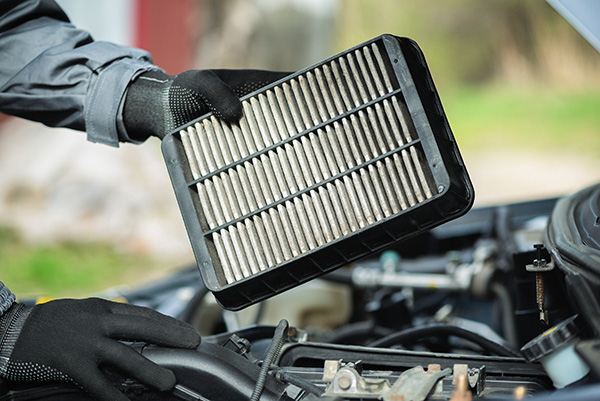Posted on 3/28/2025

Have you ever wondered how a gas pump knows exactly when to stop filling your tank? You hold the nozzle, the gas flows, and just when the tank reaches capacity, the pump shuts off—without spilling a drop. It seems automatic, but there’s actually a clever mechanical system at work inside the fuel nozzle. While many assume this process relies on sensors in the car or an electronic connection between the gas pump and the fuel tank, the reality is much simpler. Gas station pumps use a vacuum-based system built into the nozzle itself, allowing them to detect when your tank is full. The Simple Mechanism Behind Automatic Shut-Off At the tip of every gas pump nozzle, there’s a small hole connected to a tube inside the handle. While fuel is flowing, air continuously moves through this hole, creating a vacuum effect inside the nozzle’s venturi tube. As long as air is flowing freely, fuel continues to pump. But once the gas level in your tank rises hig ... read more
Posted on 2/28/2025

BMWs are known for their performance, precision engineering, and luxury features, but like any vehicle, they have their share of common issues that owners should be aware of. At Gil’s Garage Burnt Hills, we’ve worked on countless BMWs over the years and have seen patterns in the most frequent repairs and maintenance needs. BMWs are known for their great qualities, but keeping an eye out for potential issues can help you avoid unexpected breakdowns and save you from costly repairs. 1. Oil Leaks One of the most frequent issues we see in BMWs, especially in models with higher mileage, is oil leaks. The valve cover gasket and oil filter housing gasket are particularly prone to deterioration over time, leading to leaks that can drip onto engine components. If you notice a burning oil smell, oil spots under the car, or a drop in oil levels, it’s worth having the gaskets checked and replaced before the leak worsens. 2. Coolant System Failures ... read more
Posted on 1/26/2025

Tires set the right path for your vehicle's overall performance and safety. Despite this, they often don’t receive the attention they deserve. Regular tire balancing and rotation are crucial for maintaining optimal driving conditions, prolonging the lifespan of your tires, and ensuring a safe ride. We'll explain why these services are indispensable for your vehicle and what benefits you can expect when you make them part of your regular maintenance routine. What Is Tire Balancing Tire balancing ensures that the weight of the wheel-tire combination is evenly distributed around the axle. Over time, daily driving causes uneven weight distribution, which can lead to vibrations, uneven tire wear, and even potential damage to suspension components. Have you ever noticed your steering wheel shaking at certain speeds? This is often a telltale sign that your tires are out of balance. Unbalanced tires can also reduce fuel efficiency since your engine has to work ... read more
Posted on 12/20/2024

A successful road trip is all about preparation, and a key element of that preparation is packing the right snacks. The best road trip snacks are convenient, mess-free, and nutritious enough to keep everyone energized and satisfied. Whether you’re planning a short getaway or a cross-country adventure, having a variety of snacks can make the journey more enjoyable for everyone in the car. Here are some of the best road trip snacks to consider for your next family adventure. Fresh Fruits and Vegetables Fresh fruits and vegetables are a must-have for any road trip. They are not only healthy but also easy to eat on the go. Pack fruits like apples, bananas, grapes, and berries, which are convenient and less likely to create a mess. For vegetables, consider carrot sticks, celery, cucumber slices, and cherry tomatoes. These can be pre-cut and stored in resealable bags or containers for easy access. Nuts and Seeds Nuts and seeds are excellent sources ... read more
Posted on 11/29/2024

Your car relies on a steady stream of clean fuel to run efficiently. But what happens when that flow is disrupted? One often overlooked component that can significantly impact your car's performance is the fuel filter. This part ensures that dirt, debris, and impurities don’t make their way into your engine. However, over time, the fuel filter gets clogged, which can lead to a range of performance issues. So, can a clogged fuel filter really affect your car's performance? How a Fuel Filter Works Before diving into the symptoms of a clogged fuel filter, it’s helpful to understand its role in your vehicle. The fuel filter acts as a barrier between the fuel tank and the engine, trapping contaminants and particles that can cause damage to the engine. Every time you fill up your gas tank, there’s a chance that small amounts of dirt or rust could be mixed in with the fuel. The fuel filter’s job is to catch these impurities before they enter ... read more